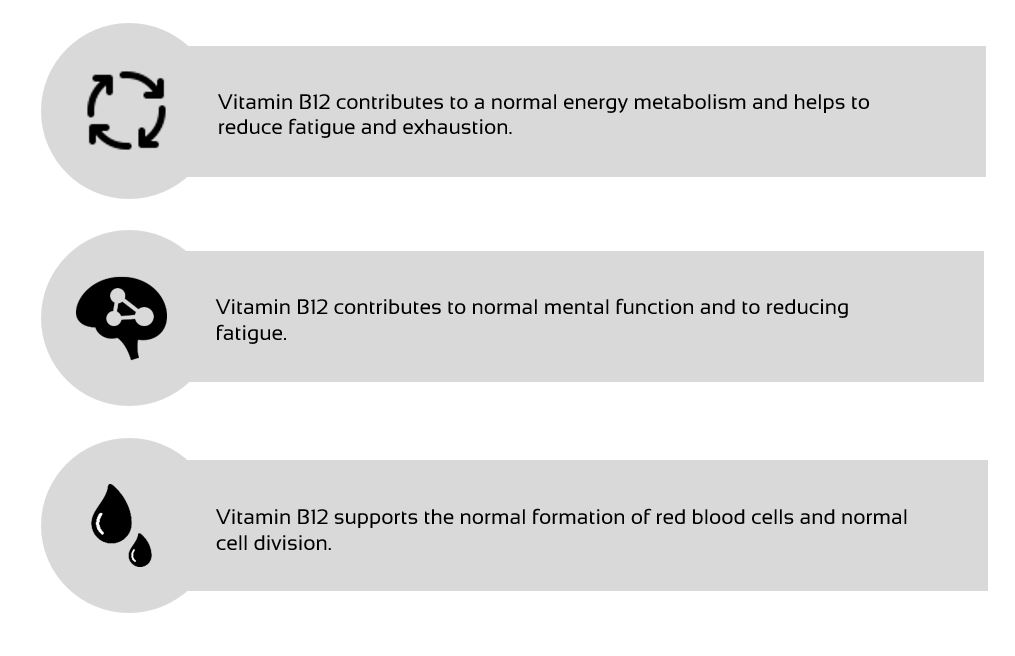
Vitamin B12 – the power vitamin
The human body cannot produce vitamin B12 itself and so is dependent on a regular intake through food. Vitamin B12 – also known as cobalamin – is particularly important for the metabolic activity of the nervous system. In addition to the formation of new blood, this nutrient also plays a role in the division of cells. Older people, vegetarians and people with kidney or intestinal conditions can be particularly affected by vitamin B12 deficiency. Known symptoms of this vitamin deficiency are fatigue and difficulty concentrating.
Functions in the body

Intake recommendations
The need for vitamin B12 depends on various factors, such as age and living circumstances. According to the Institute of Medicine, the daily requirement for an adult over 14 years of age is 2.4 mg per day. An increased daily requirement exists during pregnancy (2.6 mg) and when breastfeeding (2.8 mg). Supplements should only be taken during and after pregnancy following a medical examination and with corresponding instructions.
Occurrence in food
· Dairy products
· Fish
· Eggs
· Meat